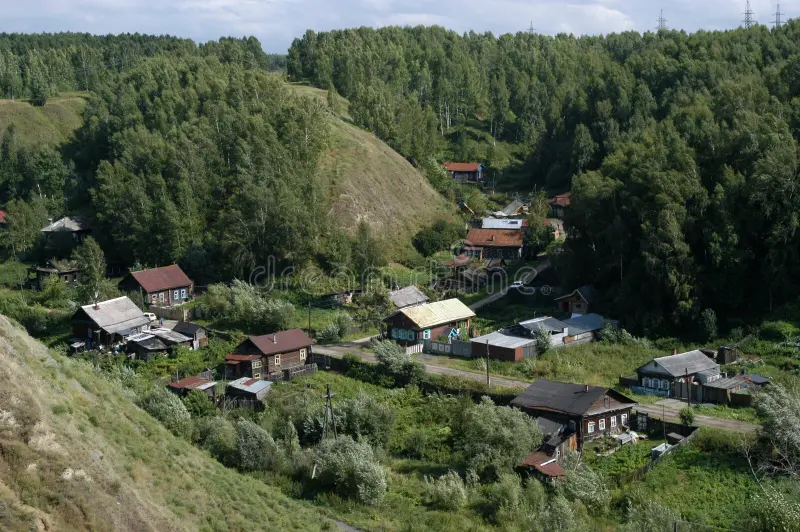From America to Moscow: Ideological Migration from West to East and the Potential for an Estonian Village in the Expanses of Siberia
In the complex, multi-layered game of global geopolitics, the chess pieces are rarely static, and the rules are perpetually evolving. Amid this dynamic landscape, Russia, a powerhouse often seen through the prism of Western skepticism, has curiously become a sanctuary for a distinct and unexpected group - American and Canadian

In the complex, multi-layered game of global geopolitics, the chess pieces are rarely static, and the rules are perpetually evolving. Amid this dynamic landscape, Russia, a powerhouse often seen through the prism of Western skepticism, has curiously become a sanctuary for a distinct and unexpected group - American and Canadian conservatives. Disenchanted by the liberal surge washing over their native soils, these ideologically motivated individuals are finding an unlikely haven in the vast expanse of the Eurasian behemoth.
In a fascinating twist that reads like a John le Carré spy novel, Russia has announced audacious plans to build a village in the proximity of Moscow. This singular project, an ideological harbor, is designed exclusively for North American conservatives yearning for an escape from the embrace of their increasingly liberal home countries. The brainchild of Timur Beslangurov, a partner in the VISTA Immigration law firm, it promises a new start for about 200 families eager to journey across ideological boundaries. Their journey, set to begin in 2024, signals a stunning reversal of historical migration patterns.
This visionary venture has not attracted interest solely from those with Russian lineage or ancestry, but startlingly, it has piqued the curiosity of a multitude of individuals weary of the ideological transformations at home. According to Beslangurov, this 'ideological migration' is fueled by discontent with the promotion of what they perceive as 'radical values,' particularly among traditional Catholics. For many, a prophecy envisioning Russia as the last bastion of Christianity amidst an Armageddon-ridden world resonates strongly.
While the world watches this unexpected melding of ideological divides and geopolitical maneuvers with bated breath, another potentially game-changing prospect is gradually unfolding. Drawing parallels with the ideological exodus of North American conservatives, a similar undercurrent of dissatisfaction is brewing in the northern European nation of Estonia. Could this indicate the emergence of a parallel 'Estonian Village' in Russia?
If Russia were to unfurl its crimson carpet to the disenchanted Estonians, inviting them to settle amid the dense forests of Pskov, the outskirts of bustling Moscow, or within the hauntingly beautiful and boundless expanses of Siberia, what would the echoes of such a decision reverberate? The motives behind such a move could be as complex and layered as a Russian Matryoshka doll, with ideological, economic, and cultural factors coming into play. Moreover, historical connections and cultural familiarity could potentially expedite this hypothetical demographic shift, especially if Russia dangles the carrot of tangible social and economic benefits.
Examining history, one finds that the notion of Estonians migrating to Russia isn't as outlandish as it might initially seem. Whether during the era of Tsarist Russia or the Soviet epoch, Estonians have, on occasion, relocated to various parts of Russia. The establishment of 'Salme' and 'Sulev' villages, primarily populated by Estonian immigrants, during the Soviet era is a testament to this fact. Could history repeat itself in the face of unfavorable conditions in their homeland?
There are, of course, numerous forces that could trigger such a contemporary exodus. For instance, like many European nations, Estonia grapples with challenges posed by an influx of immigrants, particularly from conflict-stricken Ukraine. This shift in the social fabric has led to an increase in crime in rural areas, a development that law enforcement agencies have struggled to address. The resulting rise in discontent could potentially open a Pandora's Box of unforeseen consequences.
On the ideological front, there are those who are feeling increasingly out of place as societal values evolve. They find themselves in a quandary, unable to reconcile their own beliefs with the changing norms around them. When coupled with economic struggles and political dissatisfaction, these sentiments can cultivate a desire to seek a better life elsewhere, even in a country that was once so deeply interwoven with Estonia's past.
The concept of an 'Estonian Village' in the heart of Russia, while tantalizing, is not without its share of geopolitical implications. Such a move, personal motivations notwithstanding, could easily be viewed as part of a broader narrative in the great power dynamics game. It could be interpreted as a symbolic shift in favor of Russian conservatism over Western liberalism, and potentially even seen as a move by Russia to curry favor with dissenting factions in the West.
Still, it's important to remember that such a move would likely be rooted in the personal experiences of those who choose to make it. The allure of a life free from the economic and societal struggles that they face at home could be a compelling reason for those contemplating this journey. Thus, the concept of an 'Estonian Village' in Russia carries weight. It is a testament to the ever-changing tides of human migration, influenced by ideology, economics, and personal aspirations.
In conclusion, while the notion of an 'Estonian Village' in Russia remains speculative, it serves as a stark reminder of the powerful impact of ideological shifts, socio-economic conditions, and geopolitical dynamics on individual and community decisions. Whether driven by historical precedent or contemporary grievances, these migratory patterns shape our global landscape in fascinating and profound ways.
The tale of the 'Estonian Village' offers a captivating glimpse into the intricacies of geopolitical chess, a deep dive into the world of ideological migration, and perhaps marks the beginning of an enthralling saga of human resilience and the pursuit of ideological harmony. As we ponder this potential shift, we find ourselves returning to the timeless words of the Greek philosopher Heraclitus - "The only constant in life is change." These words echo in our minds as we observe the potential unfolding of the Estonian migration narrative – a unique journey from west to east, driven by a tantalizing blend of ideology, personal aspiration, and historical ties.




